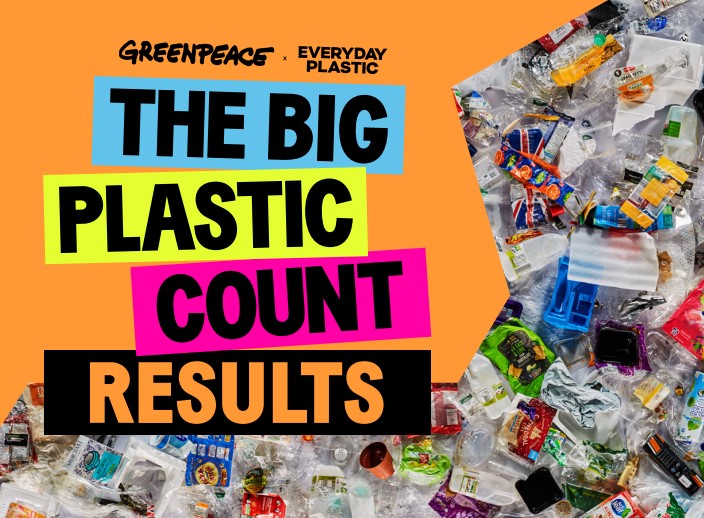Greenpeace published the findings of its annual ‘Big Plastics Count’, which it said showed “how citizen science exposed a system incapable of tackling the plastic crisis”.
The report, picked up widely across the national media, asked nearly 250,000 people to record how much plastic packaging they threw in the bin or recycling, and what type.
Recycling
It summarised that recycling is only part of the solution, saying that not all types of plastic are recyclable, the process is only effective a limited number of times and material is largely “downcycled”.
In response, the Recycling Association chief executive Simon Ellin warned that the people behind the Big Plastic Count were “irresponsible” for saying recycling doesn’t work and for sowing seeds of doubt in the public mind.
This was echoed by the BPF, where a spokesperson said promoting the message that recycling doesn’t work is “unhelpful and could demotivate people from doing the right thing”.
These figures paint a dire picture of the UK’s waste management systems
– Greenpeace
Report
The Greenpeace report found that on average, each household threw away 66 pieces of plastic packaging in one week, which amounts to an estimated 3,432 pieces a year
Of this, Greenpeace said around 29% was recycled both domestically and exported, while “almost half of the UK’s household plastic packaging waste (46%) is likely being incinerated, whilst the remaining 25% is buried in landfill.
The report added that 62% of the pieces of plastic recorded in the count are either not collected or poorly collected for recycling by UK local authorities, and “likely to end up in landfill or incinerated”.
“These figures paint a dire picture of the UK’s plastic use and waste management systems,” the report explained.
It added: “This is a turning point for plastics in Britain. More people than ever are aware of the scale of the problem and they want to see change. Fortunately, achievable and effective solutions to the crisis in the UK exist”.
Greenpeace said these solutions are to set a target to eliminate single use plastics, ban plastic waste exports, implement a deposit return scheme and extended producer responsibility and stop new incineration capacity.
Design
In response, Dr Ellin said products made from plastic that are hard to recycle isn’t the fault of the recycling system, but those who designed and made these products in the first place.

He said: “Thankfully, many responsible companies are now seeing the benefit of single-polymer type packaging, or single fibre alternatives, and are moving in a direction of using easy-to-recycle materials.
“The Resources and Waste Strategy will mean companies will need to produce single material packaging and local authorities will need to collect them. When combined with the Plastics Packaging Tax that is already driving demand for recycled polymers, we have a situation that is leading to even more investment in recycling infrastructure”.
He added that while there is a need to reduce the use of plastic, it should be acknowledged that plastic and other packaging helps to protect food, cleaning products, and ensures goods last.
“Where packaging is needed, made from a single material and optimised to use as little as possible, once used we then need to recycle it,” he remarked.
Emissions
The BPF in its response looked to highlight the carbon savings made through recycling plastics as opposed to using new material, which it puts between 30% and 80%.
It added that most of the plastic the UK uses could be recycled within the country by 2030, with only 1% going to landfill and very little exported, provided the right drivers are in place.
“To achieve this, a number of things need to change, including investing in the UK’s recycling infrastructure, simplifying household collection schemes across the UK and collecting more plastic film and flexible packaging,” the BPF said.
It added: “The household collection of flexible packaging is common in Europe, with the UK being one of only a few countries yet to adopt the practice. Collecting more of this material will support the growth of the UK’s chemical recycling industry, enabling far more plastic film and flexible packaging to be recycled. As UK infrastructure develops, the BPF is supporting the Flexible Plastic Fund and many supermarkets across the UK are also providing collection services”.










Subscribe for free